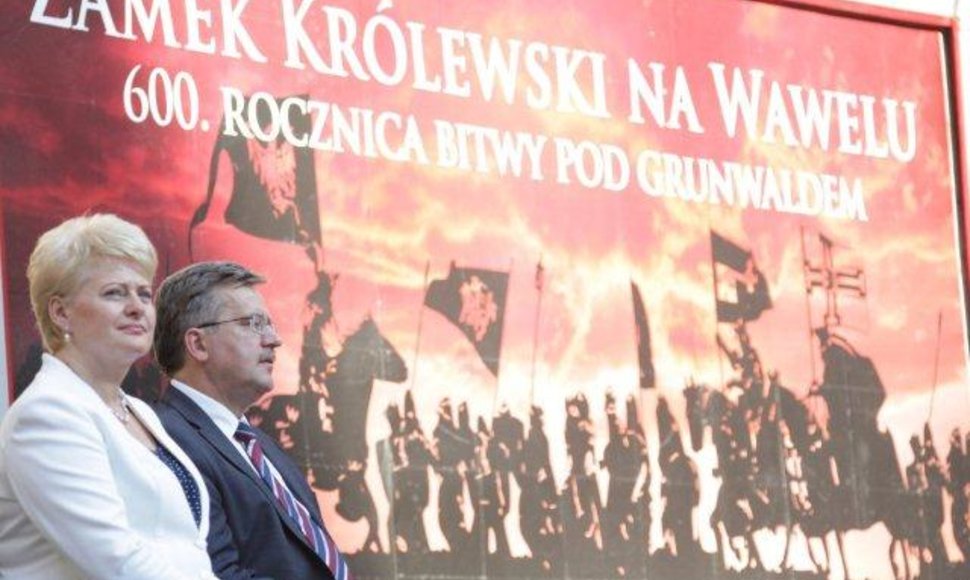In the run-up to NATO's summit in Chicago next month, the Baltic states and Poland have plenty to talk about. One big issue is how realistic to make the Steadfast Jazz wargames planned for October-November 2013. As I point out in my Wilder Europe column at our sister publication European Voice, these are the subject of discreet but intense behind-the-scenes diplomacy.
"The decision comes against a bleak background. US non-strategic nuclear weapons in Europe are under scrutiny. The US is also withdrawing conventional forces. Russia is sharply increasing its defence spending. In 2009 Russia's Ladoga and Zapad exercises, based on the scenario of attacking the Baltic states and nuking Warsaw, sent an unpleasant signal about Russian military thinking....NATO has to think beyond the current political environment, to unpleasant but possible future ones. That could include political chaos in one or more of the Baltic states, distractions elsewhere, and an aggressive leadership in the Kremlin. It must make sure that even in the worst circumstances, NATO's Article 5 guarantee is credible."
"So making Steadfast Jazz into a big exercise, involving real troops doing real things (perhaps even including live-fire exercises) would be desirable."
But:
"When credibility is at stake, any public setback is damaging: if they push publicly for live-firing and do not get it, that could easily be seen as a signal to Russia that the US no longer cares about its European allies. If, say, Italy, pleading poverty, declines to send special forces to the exercise, or if France does not want to commit land forces, that could signal that NATO members far away from Russia have stopped caring about its core mission of territorial defence."
I concluded:
"Others will be watching to see if Poland's bad diplomatic relations with Lithuania have spilled over into defence planning."
I wrote this a couple of weeks ago. Since then, exactly that has happened. Lithuania's president Dalia Grybauskaitė has petulantly refused to turn up to a planned Baltic-Polish presidential summit in Warsaw on Tuesday. It is true that presidential summmits are not always the high-voltage wire of international diplomacy. But in this case the four countries have plenty to talk about. It would also have been useful because Polish-Lithuanian government-to-government relations are especially bad right now: a presidential channel of communication might be particularly useful.
Jerzy Haszczyński is a savvy observer of the tortured Polish-Lithuanian relationship. He has written a lengthy article (in Polish) in Rzeczpospolita which is well worth reading. It is rightly entitled "Dangerous Games". Here are the main points:
"It was only four years ago that Poland and Lithuania were jointly lobbying for Georgia and Ukraine to get into NATO's waiting room. Now the two erstwhile allies are not even on speaking terms. There could be no sadder and more appropriate symbol of the dire state of their relations.
"Each explanation for the Lithuanian decision not to attend the summit is worse than the next. The official reason - that no proper invitation was issued - is untruthful. The other presidents certainly found nothing wrong in the protocol. The next explanation is that there is nothing to talk about. That is linked to a supposed threat by Poland to cancel or review its participation in the NATO air policing mission (the Baltic states do not have their own air defences so NATO allies take it in turns to provide them; Poland is the current ally, using an airfield in Lithuania). If that threat has been made (by whom?) then there is all the more reason for the presidents to meet, not least because Russia is beefing up its presence in Kaliningrad. NATO treats Poland and the Baltic states as one theatre in its contingency plans.
"Perhaps even worse would the explanation of megalomania: that Ms Grybauskaitė wants Lithuania, not Poland to be the regional leader.
"Worst of all is that the Lithuanian president simply wants to snub Poland, and that this goes down well in Lithuania. She has won praise from her stance from Česlovas Juršėnas (the deputy speaker of the Lithuanian parliament). That is bleak news for those in Poland who hope that a centre-left government taking office in the autumn might be more accommodating.
"Lithuanians feel bullied by Poland and particularly by foreign minister Radek Sikorski, who has pledged not to step foot in Vilnius until the Polish minority's situation improves; he has also compared the plight of Poles in Lithuania with those in Belarus. But whereas the situation of Lithuanians in Poland is good and getting better, that of Poles in Lithuania is the reverse."
Many in Lithuania will disagree with the above analysis in whole or in part. But the fact remains that what was once an arcane dispute about spelling and history is spilling over into things that really matter. It would be tempting to say that the whole thing has been staged by clever Kremlin manipulators to divide NATO and sow dissension in Europe's most vulnerable corner. But I fear that the real story is rather simpler and more tragic.












